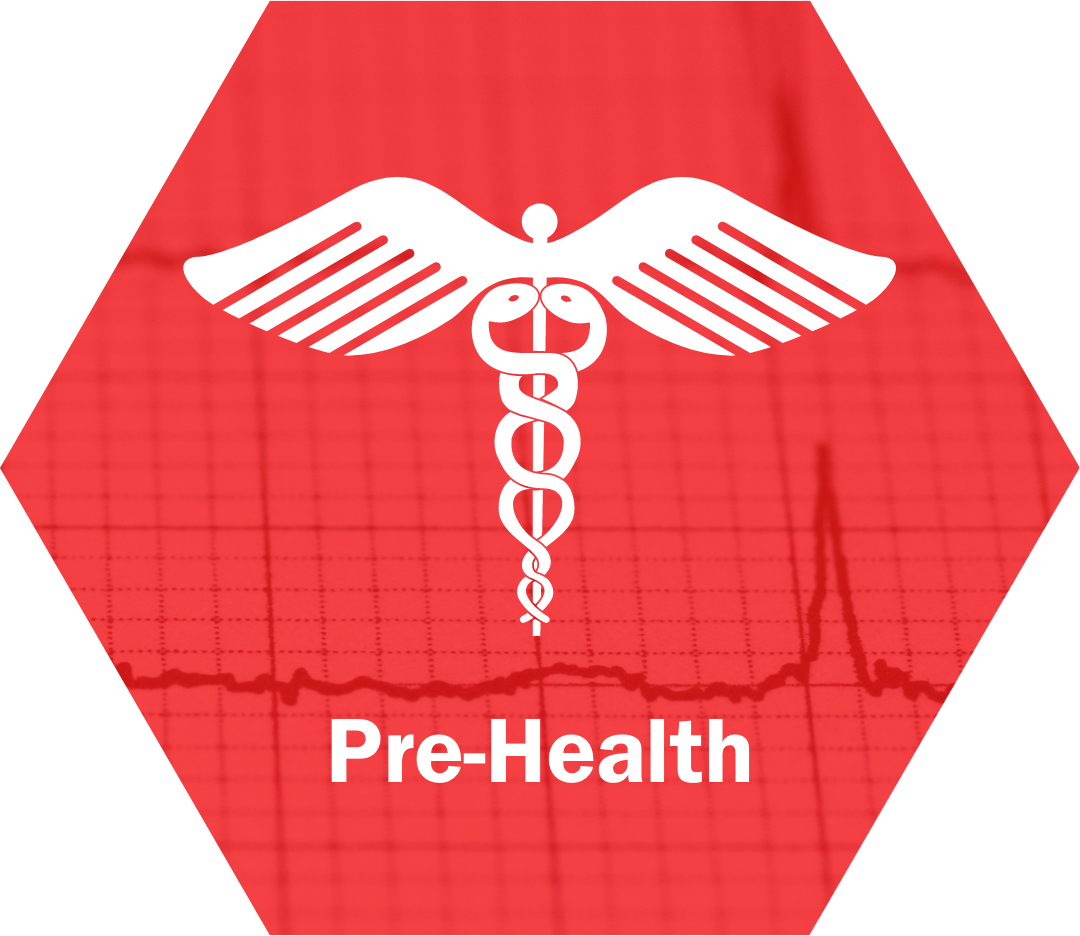
Careers in Medicine
Physicians diagnose and treat injuries or illnesses. They examine patients, take medical histories, prescribe medications, and order, perform, and interpret diagnostic tests. They counsel patients on diet, hygiene, and preventative healthcare. Physicians may work as general practitioners or choose to specialize in any number of over 120 specialties and sub-specialties.
There are two types of medical degrees. Allopathic medical schools grant the M.D. degree and Osteopathic medical schools grant the D.O. degree.
Clinical Involvement
Clinical involvement is a crucial part of the pre-health journey, as it will help you to explore and confirm your interest in the profession and demonstrate a commitment to serving others. While there is not a required number of clinical hours for the medical school application, you should plan to spend a significant amount of time outside of class gaining experience in clinical settings to strengthen your application.
Check out all of the opportunities at UVA and around Charlottesville here!
Application Process
Below is a list of action steps to plan for when you are applying to medical school. This is a simplified version of a multifaceted process, so we recommend meeting with a Pre-Health Advisor at least once per year to make sure you are on the right track.
For a full guide and details on each step in applying to medical school, read the Pre-Health Application Guide.
- Application System
-
Create an account for the system that you plan to use for your applications
- Entrance Exam
-
- Take the MCAT no later than the April prior to the application cycle beginning in May
- You should plan to spend at least 350 hours dedicated to studying for the exam
- Selecting Schools
-
It is important to select schools that are not only a good fit for your academically, but also a good fit for your values, skills, and interests that will help you become the professional you want to be. Take time to research programs prior to the application process. Here are some factors you should consider:
- Admission Requirements
- Institutional mission, goals, and values
- Size of cohort
- Location
- Clinical rotations and patient population
- Your professional interests as it aligns with the school’s mission and training
It is recommended to apply to 15-20 medical schools.
- Letters of Recommendation
-
Confirm your letter writers at least 3 months before you plan to apply. You should determine specific letter requirements and quantities from your programs of choice. Letters are most commonly required from at least one of the following categories:
- 2 Science Faculty
- 1 Non-Science Faculty
- Faculty Advisor
- Employer
- Research Mentor
- Healthcare Provider
- Volunteer Supervisor
- Timeline
-
The application process lasts approximately 18 months, which spans two academic years. You should submit your primary application as soon as possible according to the following key dates:
- AMCAS: Late May/Early June
- AACOMAS: Early May
- TMDSAS: Mid-May
- Personal Statement
-
This is a distinctive part of your application that takes time and reflection. Consider the following questions to begin:
- Why do you want to become a physician? Why is this the profession you have chosen instead of another?
- Think back to your experiences volunteering, shadowing, researching, studying abroad. Can you provide a specific story that deeply impacted you and your decision to become a physician?
Character Limits:
- AMCAS: 5,300 characters (including spaces and punctuation)
- AACOMAS: 4,500 characters (including spaces and punctuation)
Academic Pre-Requisites
Pre-requisite course requirements vary widely by individual school. You should determine specific requirements for programs of choice using the:
- Association of American Medical Colleges Medical School Admission Requirements Subscription (MSAR)
- Osteopathic Medical College Information Book
The summary below is a list of the most common pre-medical requirements.
|
Course |
Amount |
Required for Schools? |
Needed for MCAT Prep? |
|
English/Writing Composition |
2 courses |
Yes |
Yes |
|
Introductory Biology |
2 lectures, 2 labs |
Yes |
Yes |
|
General Chemistry |
2 lectures, 2 labs |
Yes |
Yes |
|
Organic Chemistry |
2 lectures, 2 labs |
Yes |
Yes |
|
General Physics |
2 lectures, 2 labs |
Yes |
Yes |
|
Calculus |
1-2 courses |
Many |
No |
|
Introductory Statistics |
1 course |
Many |
Yes |
|
Biochemistry |
1 course |
Many |
Yes |
|
Introductory Sociology |
1 course |
Some |
Yes |
|
Introductory Psychology |
1 course |
Some |
Yes |
|
Genetics |
1 course |
Some |
Helpful |
|
Cell Biology |
1 course |
Some |
Helpful |
|
*Texas Residents: TX Medical Schools require 14 semester hours of biological science courses (not including biochemistry). Make sure you are familiar with the summary of Texas school undergraduate course requirements outlined by TMDSAS. |
|||

